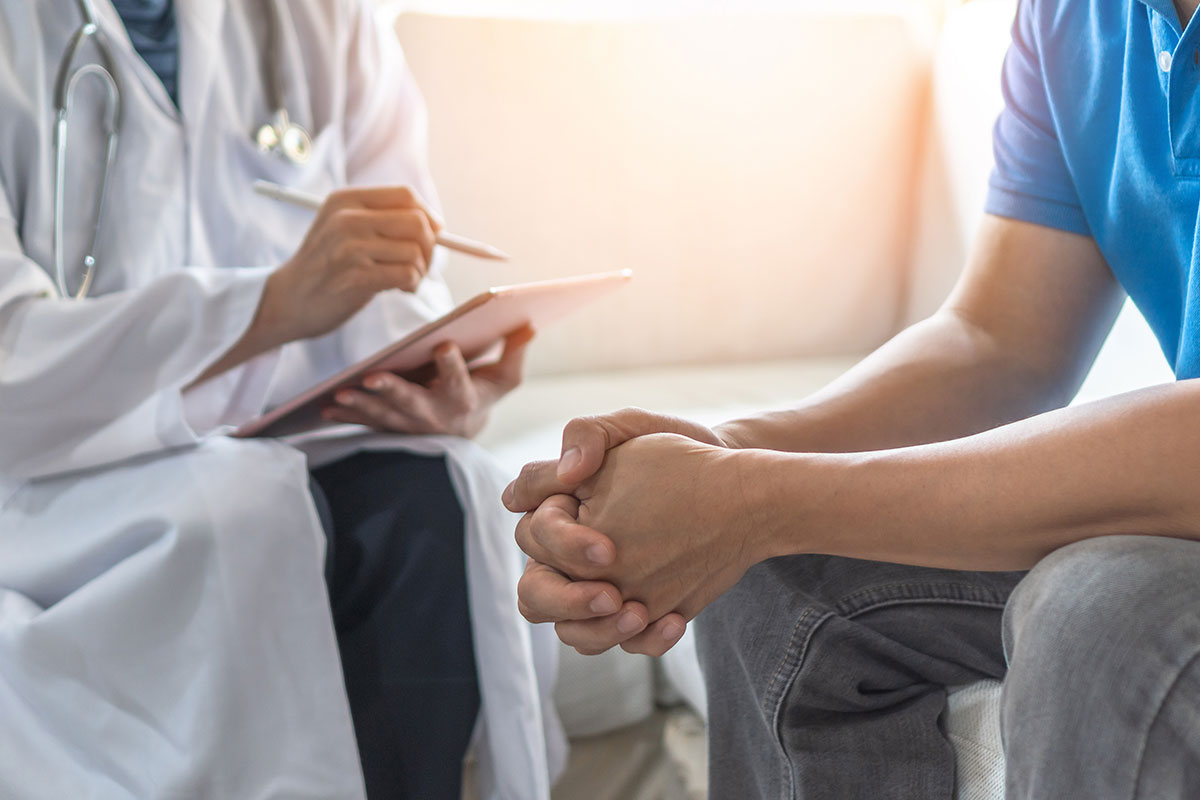
Popular Locations
- NEMG Internal Medicine - New Haven
- NEMG Internal Medicine - Orange
- NEMG Internal Medicine - Trumbull

Published June 28, 2021

It may be easy to ignore regular health screenings, especially if you think you are healthy. However early detection can help save lives. Men in particular need to pay attention to their risk of heart disease, lung cancer, and colon cancer. Learn more about some of the top health screenings men should not delay.
Lung cancer is the leading cause of cancer related death in men. Lung cancer can be prevented by avoiding smoking.
For those who do smoke, or have smoked in the recent past, having a CT scan of the lungs annually can help to detect lung cancer at an earlier stage. If found early, lung cancer can be cured by surgery. Additional treatments are available for larger cancers.
Symptoms of lung cancer usually develop in later stages. You should seek care for unexplained chest pain, chronic cough, or blood in your sputum.
Colon cancer screening is very effective to find colon cancer early and treat it. Screening can now be done by simple stool testing yearly or colonoscopy every 5-10 years. Regardless of which method chosen for the initial screening, a colonoscopy is necessary if blood is detected. Colonoscopy is the best way to remove pre-cancerous polyps in the colon.
“The real benefit of the colonoscopy is that it can prevent 60-90% of colon cancer from ever developing. All other cancer screening procedures are designed to find the cancer as early as possible, but only the colonoscopy can prevent it from ever forming by removing pre-cancerous polyps,” said Northeast Medical Group gastroenterologist Daniel Pievsky, DO.
The United State Preventative Services Task Force (USPSTF) recommends regular screening for colon cancer start at:
Some patient may avoid getting a colonoscopy because of the prep, however there are many new preparations available which not only taste better but are also much less volume to drink than the gallon jug from the olden days. There is even a new all pill prep that does not require drinking anything other than water. The day before a colonoscopy, the patient will usually need to stick to a liquid diet. During the procedure however, the patient is sedated and feels no pain. It is a worthwhile investment since just one colonoscopy can help protect you for years to come.
Prostate cancer is the second leading cause of cancer related death in men. If found early, there are treatment options available such as surgery or radiation.
Some of the common symptoms of prostate cancer can include:
If you are experiencing any of those symptoms, you should talk with your doctor. A digital rectal exam can help identify abnormalities that could lead to other tests. A prostate-specific antigen (PSA) test is a simple blood test that can screen the prostate for cancer and is an option for men ages 45-70.
While anyone can have heart disease, it is the cause of nearly one in every four male deaths, according to the CDC. Heart disease is known as a “silent killer” because oftentimes, patients will not know they had an elevated risk until they experience a heart attack. Some of the common risk factors for heart disease include:
Younger men may not think to get their blood pressure checked. However, every adult should get a baseline reading. If you have high blood pressure, lifestyle changes or medication can make a big difference.
“Screening for high blood pressure by your primary care provider and occasional checks on your own at home can prevent a heart or stroke catastrophe,” said Cardiologist Alon Ronen, MD. “Elevated blood pressure often has no symptoms, and we know that even a small elevation of 5-10 mmHg above normal can increase the risk of stroke by 40%.”
Even if you do not have an elevated risk for conditions such as heart disease, you should still go see a primary care doctor for your yearly exam. A primary care doctor will be on the lookout for other health concerns that may not be on your radar such as depression, a change in diet or increased alcohol and tobacco use.
“Eating healthfully, staying active, not smoking, and keeping the blood pressure normal are very powerful to prevent heart disease and many cancers. I strongly encourage attention to these healthy behaviors as a simple and effective means to stay healthy “ says Karen Brown MD, Medical Director of NEMG Primary Care.
It is also easier than ever to schedule an exam with a primary care doctor. Most insurance companies cover the cost of a yearly physical, or just require a small co-pay. If you are unable to get to your doctor in person, many primary care doctors are using telehealth services to connect with their patients. You can even find a doctor and book an appointment with them online.